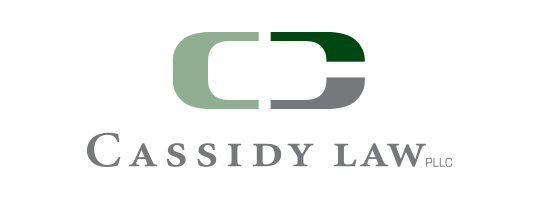
Do ethics and compliance have a price? Yep, and it varies depending on the scenario. But for this post, I am going to start my calculation at about $4.5 billion dollars.
In 2015, Forbes Magazine put Ms. Elizabeth Holmes, founder and CEO of Theranos, on its list of the world’s richest self-made women with a net worth of $4.5 billion dollars. In 2003, Ms. Holmes founded Theranos based on technology she innovated which produced lab results from just a few drops of blood. Intrigued with the idea and seeing its market potential, in 2014 private investors bought shares of Theranos and valued it at $9.0 billion. Since Ms. Holmes owns half of Theranos, her net worth was half of that – $4.5 billion.
According to news reports, things have started to unravel for Theranos.
It began with the Wall Street Journal doing some reporting on just what the heck Theranos had going on – could it really do the testing it claimed it could do? The Journal walked away a bit skeptical about Theranos’ capabilities. WSJ October 16, 2015
Then, Walgreens, Theranos’ largest business partner, began doubting the Theranos technology and started casting about for proof of what it could actually do. Initially, Walgreens sent a letter to Theranos saying “fix your lab issues or we are outta here.” Ultimately, Walgreens terminated its relationship with Theranos, believing Theranos could not deliver as promised.
Next came the nasty regulator letters. Specifically, the Centers for Medicare and Medicaid Services (CMS) sent Theranos a letter saying: “we don’t trust your blood test results.” While this was happening, a Theranos employee also claimed that Theranos test results were not accurate. WSJ April 18, 2016. CMS told Theranos it either had to fix the situation or it would shut down Theranos and ban Ms. Holmes from laboratories. In July of this year, CMS banned Ms. Holmes from running labs for two years and levied some other penalties. WSJ July 8, 2016
Next news hit that the Department of Justice and the Securities Exchange Commission were investigating Theranos. Folks theorize the investigation is perhaps based on the theory that Theranos misled investors about its innovations and capabilities to get them to invest. WSJ April 18, 2016
So, now a year after being worth $4.5 billion, Forbes recalculated Ms. Holmes’ net worth. And, so as not to bore you (it actually kind of bores me), I will truncate the Forbes calculation down to this: industry analysts and others opined that Theranos is probably only worth about $800 million. Since Theranos preferred stockholders get to jump in line ahead of Ms. Holmes and her common stock when getting paid from the company in the event of liquidation, investors would get paid before Ms. Holmes. Thus, Forbes calculated since it is unlikely anything would be left for Ms. Holmes, her new net worth is zero. Please note though that according to Forbes, there are currently no indications that Theranos is going to be liquidated. Instead, Forbes is “just sayin’” that if Theranos were to be liquidated at some future date….
And, it seemed that this calculation did not include the legal fees and associated costs to Theranos for all the legal battles it is fighting with DOJ, SEC and CMS.
All the Theranos media stories caused me to think of another company – Enron – the muse for Sarbanes-Oxley and the “ethics and compliance” requirements businesses must follow today.
Back in Enron’s time, a savvy Fortune magazine business journalist, Bethany McLean, sat back and thought: just how does Enron make money? Its business model didn’t make sense to her.
Meanwhile, inside Enron, an employee or two also thought things did not make sense and they began asking questions. Then, DOJ started asking questions…. the rest is history.
But many at Enron or charged to oversee Enron did know what was going on. The lawyers, the auditors, the CEO, the board and other executives – they all knew. But no one stopped to think about it, nor did anyone ask questions.
Unfortunately, it’s a terrible history for all the employees and business partners of Enron; and it’s a stain on the merits of capitalism.
What will become of Theranos? Who knows. But think about this: had Enron or Theranos (or any company, for that matter) just slowed down, let the lawyers ask their probative questions and let the finance folks run some numbers to see if they added up, maybe someone would have determined that something may not be right.
Similarly, a company’s scientists, engineers and quality control people all know that you must test to see if your service or product can deliver. Companies must have these tests because if they determine that the service or products can’t deliver, the company can’t sell them as if they can deliver. Instead, the company must revamp and retool before DOJ swoops in and starts with its questions, its financial statement review and its check on quality.
This is how capitalism and the law work hand-in-hand. The leaders and employees of an organization are required to challenge assumptions, ideas, quality of services and products as well as the accuracy of financials. The proponent of the idea or claim needs to prove it. And, accurate information needs to be available to investors. It’s the whole point of our security laws and regulations.
When an idea is smoke and mirrors or the business is based on a faulty financial premise and those facts are available to the market, then, the business cannot get investors and will evaporate.
So – does everyone in business behave? No. When they don’t, the government will investigate and prosecute the business and its leaders and employees for either failing to accurately inform the markets or for deceiving investors or clients.
Now, Theranos shows signs that it’s going to test its assumptions and challenge the reliability and quality of its innovations to make sure investors and customers have accurate information. It has hired a chief compliance officer and a vice-president for regulatory and quality. It also added a regulatory and quality committee to its board.
Here’s the ironic thing: the new chief compliance officer and the vice-president for regulatory and quality will report to the CMS suspended CEO, Ms. Holmes.
Media reports claim that historically, Ms. Holmes has tightly controlled information at Theranos and did not share much. Apparently, she didn’t advise employees about the investigations it was the subject of and Theranos never delivered its blood testing machine for outside evaluation. Also, when Walgreens came by to see how Theranos’ labs worked, the Walgreens folks did not learn much.
Additionally, a good portion of Theranos’ blood tests had failed and were subject to regulatory scrutiny resulting in Ms. Holmes’ two year debarment from running labs. The tests occurred under Ms. Holmes’ leadership.
So, from a governance perspective, she may not be the best person for the compliance officer and the quality control guy to report to. Also remember that as CEO, Ms. Holmes’ net worth is tied to the value of Theranos, as is her reputation.
If she really wants her business to objectively evaluate its capabilities, given where Theranos is, the compliance officer should report directly to the general counsel and not Ms. Theranos. The quality control guy can then report to the compliance officer.
If Ms. Holmes had hired the lawyer-compliance officer to help grow the moral fiber and compliant culture of her business, before these troubles began, then maybe, the train we are watching would have been slowed down a bit and some really great advances in blood testing would be in the market for use. But as it is now, Ms. Holmes and her company are behind in their legal and regulatory requirements. As a result, she now has either a zero or negative net worth. I hope they can move Theranos in the right direction and bring Ms. Holmes’ ideas to market. And I hope that Ms. Holmes has learned that ethics and compliance do have a price tag – they are priceless.

